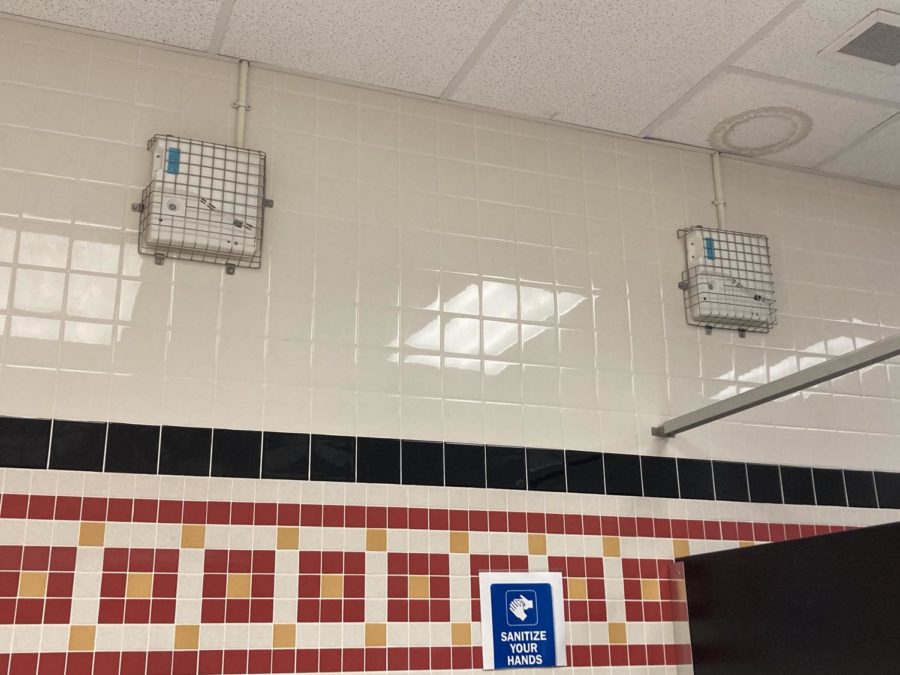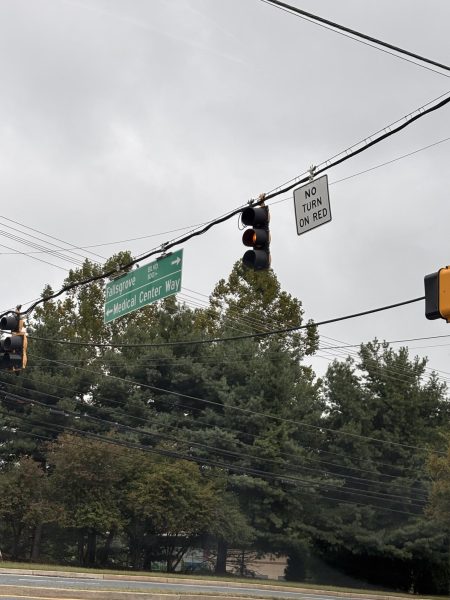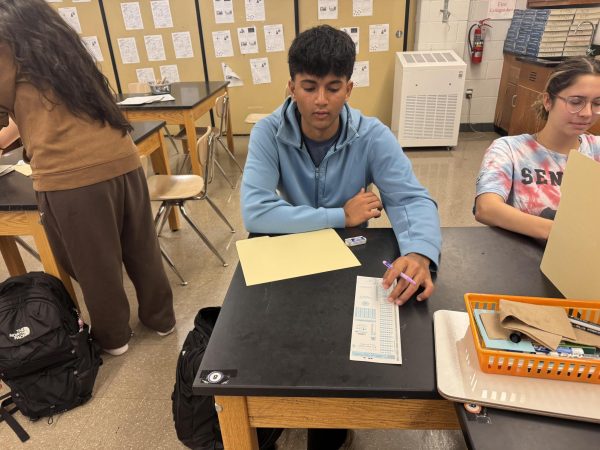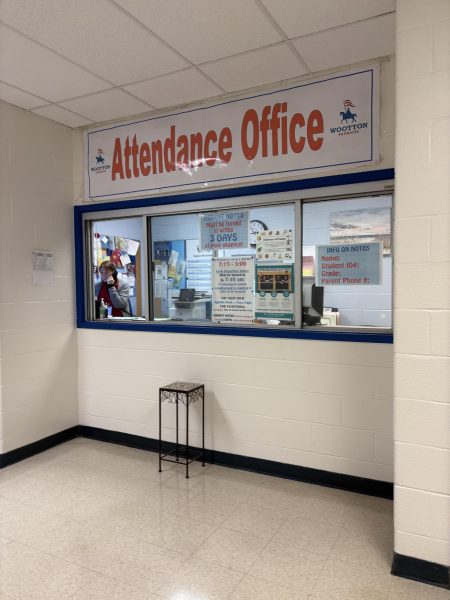Vape detectors implemented in six MCPS high schools
Vape Detectors have been piloted in six local high schools (Richard Montgomery, Kennedy, Paint Branch, Quince Orchard, Northwood, and Whitman) until the end of the school year to help eliminate “bathroom culture.”
Detectors are designed to recognize vape fumes or smoke in a particular area, for example, a bathroom stall. If vaping is identified, a notification will be sent to an appointed staff member via text or email. Then, the specified person can inspect and evaluate the situation. “If we get a notification we will need to visit the bathroom, which we constantly are checking. It will take time to get there if we are not busy at the moment. I do believe MCPS is doing a pilot because there are so many unknowns,” head security guard Chris Pucciarelli said.
The detectors would be placed in bathrooms strategically based on the room’s size and layout. Thus, the number of detectors will vary from bathroom to bathroom.
The goal of this project is to allow schools to be aware and take appropriate action against students’ abilities to harm their health and safety through vaping. “I think kids are going to vape whether the detectors are in there or not. I think there needs to be more education on harmful effects of vaping with more access to get help to quit,” Pucciarelli said.
As MCPS is new to this technology, there are questions about the efficiency of these detectors, including how quickly adults will be notified and how quickly they can get to the bathroom. Also, if there is a group of students in the bathroom, who does the adult talk to? The pilot program aims to answer some of these questions.
Due to recent overdoses and violence in the MCPS community, alongside the vaping detectors, ID badges are now mandatory for high school students while on MCPS property during the day. These security measures are a part of MCPS’s new safety initiative. There are concerns about how the initiative will be monitored, the abrupt transition, and if MCPS will go through with fully implementing the program. “Schools have a reputation for starting projects and then not following through,” freshman Sarah Magazine said.
A statement issued by MCPS on Apr. 12 reiterated that all illegal drugs and tobacco products are banned on school grounds. MCPS did not specify how many students have been caught and received punishments for vaping on MCPS property this school year. The selected schools piloting the program were distributed across the county and were chosen due to incidents over the past school year. For example, RM was selected after their two gun-related safety threats in January. “Vaping isn’t as deep rooted as in lower-income schools. Our school is a good school but it is a problem even though it isn’t seen as one,” sophomore Jamie Allen said.
Vaping long-term can impair blood vessels, causing a higher chance of heart disease and lung damage. The impacts of vaping are commonly known, yet vaping remains prominent among teenagers. “We need more resources for kids who want to quit,” Pucciarelli said.
Your donation will support the student journalists of Thomas S. Wootton High School. Your contribution will allow us to purchase equipment and cover our annual website hosting costs.

Senior Hayley Gottesman is an editor-in-chief in her third year on Common Sense. She enjoys reading and hanging out with her friends. You can find her...







